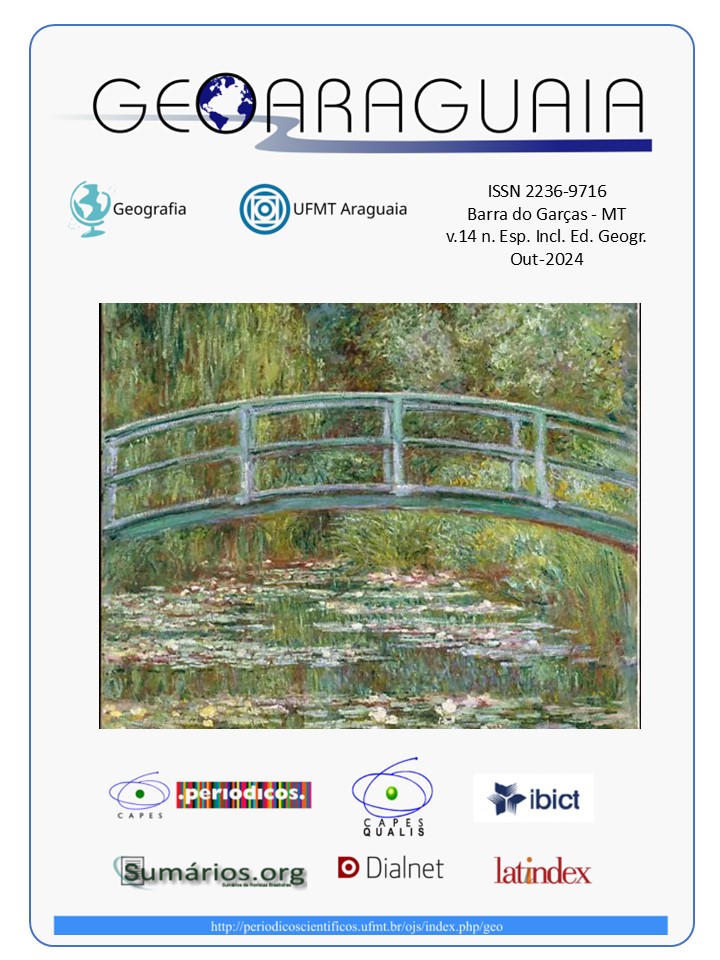Geografia silenciosa: desafios e potencialidades no ensino e aprendizagem de Geografia em escolas bilíngues para surdos
Keywords:
Libras 1; Geography for the deaf 2; active methodology; 3 flipped classroom.Abstract
This article aims to discuss the challenges faced by bilingual geography teachers in brazilian sign language (LIBRAS), observing issues influenced by the history of the deaf community, which for centuries suffered discrimination and the prohibition of the use of sign language (SL) in institutional spaces. The authors identified some problems involving teaching work, with emphasis on the lack of proficiency in Libras among education professionals; little access to continued training and the lack of signposting to the geographic concepts and dynamics covered in the classroom. It is precisely in the lack of signage that the debate about the potential of geographic teaching for the deaf begins. From the report of an activity carried out with students in the 3rd year of high school at the Colégio Estadual do Instituto Londrinense de Educação de Surdos, in the discipline of Geopolitics (Geography 1), it is demonstrated that, despite the challenge of approaching a concept that does not present a signal in the LS, in this case the territory, the visual-spatial contextualization allows for a deeper understanding, making knowledge more critical and autonomous. Furthermore, a correlation is made between the linguistic modality of Libras, visual-spatial, and the object of study of Geography, geographic space, showing how the way deaf people inhabit the world becomes an important ally in reading. and interpretation of the landscape and places, which allows the appropriation of geographic concepts, making this relationship, language and science, a unique form of interaction in deaf education. It is concluded that the challenges faced in the search for quality bilingual education are notorious, however, at the same time, the possibilities provided by deaf people, their culture and construction of the world are infinite, configuring a sensorial geographic education, focused on experience of a space lived and constructed by deaf people.
Downloads
Published
How to Cite
Issue
Section
License
A Revista Geoaraguaia poderá solicitar alterações de ordem normativa, ortográfica e gramatical, com vistas a manter o padrão culto da língua. Se necessário, alguns ajustes normativos podem ser feitos pela revista, porém respeitando o estilo dos autores.
As provas finais não serão enviadas aos autores.
As opiniões emitidas pelos autores dos artigos são de sua exclusiva responsabilidade.





 A revista
A revista